CALL FOR CONCEPT NOTES
KENYA WINDOW IS NOW OPEN
Application deadline: April 15th, 2024, 11:59 PM, EAT.
Job Creation in Agribusiness Export Sectors
USAID-ERRA, through TradeMark Africa (TMA), invites concept notes from private sector entities operating in the agricultural (horticulture, livestock, or fisheries) and Cotton, Textile, and garment (CTG) sectors. The aim is to develop innovative solutions that strengthen Kenya’s agricultural competitiveness, fostering increased exports, job creation and preservation, and improved resilience of companies to mitigate the impacts of COVID-19 and other climate change shocks.
Geographical Requirements: Partners are required to be directly targeting beneficiaries within Kenya.
Interested applicants are encouraged to read the Annual Program Statement(APS) to understand the type of entities sought, concept note submission requirements, eligibility criteria, and evaluation process.
If you have any queries or difficulty applying, please email: [email protected]. Please note only concept notes submitted through the portal will be evaluated. Please register to submit your concept.
USAID-Economic Recovery and Reform Activity
FAQs
The call mentions horticulture, livestock, fisheries, cotton, textile, and apparel sectors, focusing on job creation, local sourcing and processing, and export. As this is still relatively broad, are there any types of business models that you are especially interested in funding?
USAID-ERRA aims to promote resilient transformative trade and investment reforms in the East and Horn of Africa region, accelerating recovery from the negative socio-economic impacts of the COVID-19 pandemic while advancing the region’s self-reliance, sustainable economic growth capacity, competitiveness, and environmental sustainability.
USAID-ERRA is looking to partner with businesses/institutions/consortiums, bringing together multiple partners (refer to the eligibility section of the call for proposals) that offer innovative, market-based, and sustainable interventions that positively contribute to job creation in Kenya.
Is It a requirement that all interventions lead to export, or can domestic sales also be considered? For example, in the case of sustainable aquaculture?
The program aims to support job creation in export-oriented value chains. Aquaculture falls in this category due to its trade potential in the region. The proposal’s validity will be assessed based on the potential to create jobs through trade. Projects with the potential to increase access to regional or other export markets will have an added advantage as they directly contribute to the overall objectives of USAID-ERRA.
Please refer to the introduction section of the call to see illustrative interventions for Kenya’s job creation.
Our project will include the establishment of a processing facility. It is clear that the construction costs are not eligible for grant funding, but the costs of machinery and equipment are. We query whether any operational costs of running the processing facility over the project lifetime, e.g., management, direct staff, utilities, including power, maintenance, etc., are eligible for USAID-ERRA grant funding
No, the grant will NOT cover operational costs. As highlighted under section 3 of the call for proposal, “Given the emphasis on market-based solutions, we will only consider working with eligible applicants to present ideas that would not be possible without support from USAID-ERRA. We will not fund existing operations or ‘business as usual.’ We are interested in supporting solutions that would not be possible within the same timeline or on the same scale without support from USAID-ERRA.”
Our proposed project will consist of some expenditure categories (e.g., equipment) eligible for grant funding and other categories not (e.g., vehicles, construction). To implement the project, the applicant must fund 100% of the activities not eligible for grant funding. Does this count towards the overall contribution of the applicant?
Yes, this will count towards the overall contribution of the applicant. Based on the submitted project proposal, cost eligibility will be agreed upon during the co-creation stage.
Can the applicant, as a private company, partner with a Kenya NGO for implementation?
Yes, joint ventures (JV) are acceptable. Applicants will need to demonstrate the roles of each party of the JV at the co-creation stage.
Do existing employees whose jobs will be maintained by the project contribute to the job creation number used to estimate results or only new jobs?
Yes. USAID-ERRA’s job creation methodology considers new, direct, and sustained jobs.
What is the deadline for submitting the requisition?
The deadline is April 15, 2024, at 11:59 pm, EAT.
Are farmer cooperatives eligible to apply for the above?
Yes, farmers’ cooperatives are eligible to apply for this facility as long as they meet all the requirements and eligibility criteria set out in the APS and Call or Applications.


